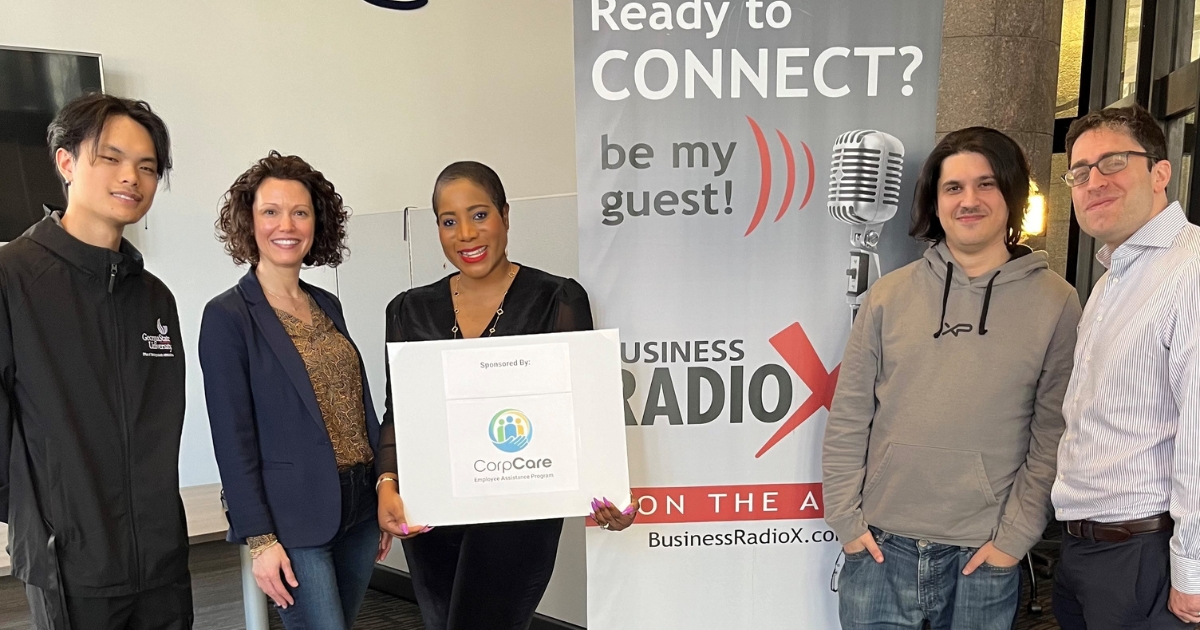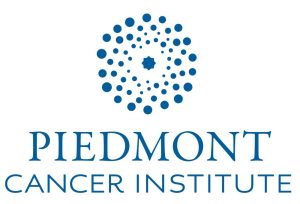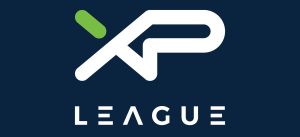

In this episode of Chamber Spotlight, Lola Okunola is joined by three guests who are impacting their community. Dr. Eiran Warner from Piedmont Cancer Institute discusses providing local, personalized cancer care and blood disorder treatments, emphasizing the institute’s unique position as a private practice. LeeAnne Canecchio from GRATITUDESgroup explains her role in culture engineering, helping companies align their people strategies with business strategies and implement core values throughout an employee’s lifecycle. And Tim Bajjani of XP League and Esports Center talks about the benefits of esports for kids, focusing on teamwork, communication, and strategic thinking, and his efforts to make the program accessible to children of various backgrounds.

 Dr. Eiran Warner treats patients with all cancer types given his extensive experience in oncology and hematology.
Dr. Eiran Warner treats patients with all cancer types given his extensive experience in oncology and hematology.
Dr. Warner comes to us from Henry Ford Cancer Institute and joined Piedmont Cancer Institute in July of 2022. He is a specialist in hematology and medical oncology and is board certified in hematology, medical oncology, and internal medicine.
In his spare time Dr. Warner enjoys playing tennis, traveling with his wife and daughter and watching Michigan Wolverine games.
Honors & Awards
Finalist in Vignettes Category at the Society of Hospital Medicine Annual Meeting – 2014
Connect with Dr. Warner on LinkedIn and follow Piedmont Cancer Institute on Facebook.
![]()
 LeeAnne Canecchio is Senior Vice President of Operations at GRATITUDESgroup, a woman-owned talent optimization and culture engineering agency. Her role includes managing multiple projects within the company and industry, monitoring overall business performance, and striving to meet company strategic goals, missions, values, and beliefs.
LeeAnne Canecchio is Senior Vice President of Operations at GRATITUDESgroup, a woman-owned talent optimization and culture engineering agency. Her role includes managing multiple projects within the company and industry, monitoring overall business performance, and striving to meet company strategic goals, missions, values, and beliefs.
Prior to working at GRATITUDESgroup, she had fifteen years of experience in the healthcare industry, where she worked building programs for employee engagement and corporate culture. Her focus was on establishing a systematic measurement program that evaluated the organizational performance of the client centers, as well as assimilating new employees into the culture of the company and building team unity.
Her passion is helping to create inclusive, trusting, and cheery workplaces that encourage both personal and professional growth. LeeAnne currently serves as the Vice President of Marketing and Communications on the Board for The Society of Incentive Travel Excellence, Southeast Chapter. LeeAnne holds the following certification: CIS – Certified Incentive Specialist.
Follow GRATITUDESgroup on LinkedIn and Facebook.

 Tim Bajjani has been a gamer since he was a kid. He’s always been a competitive person and his primary outlet as a child was soccer where he had the privilege of playing in college and overseas.
Tim Bajjani has been a gamer since he was a kid. He’s always been a competitive person and his primary outlet as a child was soccer where he had the privilege of playing in college and overseas.
Two years into college, Tim chose to give up playing after never fully recovering from a substantial injury, and focused on his future outside of sports. He got his degree in accounting and an MBA from Bellarmine University in Louisville, KY.
Tim has worked in several industries such as manufacturing, construction and is currently the movie industry.
Follow XP League Dunwoody on Facebook.
![]() This transcript is machine transcribed by Sonix
This transcript is machine transcribed by Sonix
TRANSCRIPT
Intro: [00:00:08] Broadcasting live from the Business RadioX studio in Sandy Springs, Georgia, it’s time for Chamber Spotlight, brought to you by Corp Care. Your employee assistance program partner. Caring for them because we care about you. For more information, go to CorpCareEAP.com. Now here’s your host.
Lola Okunola: [00:00:32] Hello and welcome to another episode of Chamber Spotlight, brought to you by our amazing sponsor, CorpCare, an employee assistance program company. I’m your host, Lola Okunola, and I’m thrilled to be here today with a panel of fantastic guests who are making a significant impact in our community. Let’s dive right in and get to know them. First, Dr. Eiran Warner of the Piedmont Cancer Institute. We’re so happy to have you here today. Can you please tell us about what you are doing at the Piedmont Cancer Institute?
Dr. Eiran Warner: [00:01:15] Of course. Thank you so much for having me here. So I’m a medical oncologist. I treat cancer patients. Um, I was very lucky to join the practice about 18 months ago. Um, where previously I was in Michigan. And, um, we have practices all over Atlanta. Historically, our main office was in Howell Mill within Atlanta and then on the southern side of metro Atlanta. And we’ve had so many patients who really didn’t like to drive into the perimeter, um, especially living on the north side of metro Atlanta. And we’re so excited to about a year and a half ago, um, open up an office in Sandy Springs to be able to take care of our patients who lived more local and not have to make that big commute into the actual city. Um, and so, um, it’s a really nice practice, um, joined by a couple of my partners, Doctor Rajani Sinha and Doctor Samantha Shams, and it’s gotten busy pretty quickly, and our patients are really excited to be able to have, um, a cancer care and blood disorder treatments done locally in Sandy Springs.
Lola Okunola: [00:02:19] Wow. That’s awesome. Um, we all know that. I mean, I feel everyone knows someone that has cancer or that has been through cancer. It’s that C word that you don’t want to hear about. Is there a particular one that you specialize in, or do you specialize in or do you work with all types of cancers?
Dr. Eiran Warner: [00:02:38] Yeah, I’m a community oncologist and hematologist. I actually do both. I get patients with blood disorders like iron deficiency, get very nervous to be in a cancer institute. But, um, we’re generalists. Um, and so I have the privilege of seeing of wide diverse, um, um, field of medicine within oncology cancer care and within hematology. And I find it really interesting to be able to treat different sites. Um, and that lets me see a wide variety of patients with different needs.
Lola Okunola: [00:03:08] Is there anything that is special that you do at the Piedmont Institute that you think is different from other cancer institutes?
Dr. Eiran Warner: [00:03:17] Absolutely. Um, we are the last, um, private practice, um, treating cancer and blood disorders in all of metro Atlanta. I believe we might, in fact, be the last private one in Georgia itself. Um, that just specifically does hematology and medical oncology. And I do think that makes a huge difference for patients instead of, you know, this impersonal, big, huge institutions that really kind of taken over all of health care, not just in Atlanta or Georgia or even across the country, we’re able to offer really personalized service in a way that you’re just not going to get in, uh, big corporate like, uh, big hospital system.
Lola Okunola: [00:03:54] Wow. That’s really, really interesting to know. Thank you for sharing that. Next, our guest, our next guest is LeeAnne Canecchio. Or help me, help me. Sure.
LeeAnne Canecchio: [00:04:07] LeeAnne Canecchio. Canecchio.
Lola Okunola: [00:04:09] LeeAnne Canecchio. That’s a beautiful name. LeeAnne Canecchio joins us from GRATITIDESgroup and she’s going to talk to us about culture engineering today. Tell us some more.
LeeAnne Canecchio: [00:04:21] Thank you so much. I’m happy to be here. So I work for GRATITUDESgroup. We are a culture engineering agency. So we truly focus on, um, aligning people strategies with business strategies. Um, people kind of shy away from culture. I think sometimes it’s. Oh, I checked this box. We did it. We sent out the survey. Um, but we are definitely more than that. So, um, truly learning what culture is. It’s the feeling that you get when you walk through the door, um, somewhere. And we all have a culture, good or bad. Um, so we just need to embrace where we’re at and figure out how, you know, how we can move forward with it. So, um, also assist with implementing your core values, which are imperative for having a successful and positive culture, um, implementing those throughout your entire organization all the way from pre-hire through retirement. Um, and we just assist with strategies on that. We have sessions where we come in as third party, um, and help grow your employees to culture ambassadors so that they’re, they’re then empowered to take that knowledge and, you know, hold others accountable to the core values and, um, spread those values throughout the organization.
Lola Okunola: [00:05:31] That’s awesome. I, I definitely feel like corporate culture is super important when it comes to talent Retainership talent acquisition. Um, you know, everyone wants to be in in an organization that feels good to to be at that embraces balance, work life balance, and, you know, so many other things. I’m curious though, like who who do you approach or do people approach you? Do they come when they have a problem, or are these companies that, you know, have foresight and, you know, take the initiative before there is an issue and say, hey, we want to be deliberate about building a culture. Like I’m just curious. Sure.
LeeAnne Canecchio: [00:06:15] Great question. So we actually have both types. So we have culture engineering sessions for both types of organizations. So organizations that are currently struggling, they know they’re struggling. They have high turnover rates, bad low employee engagement, um, and difficulties retaining or attracting new employees. Um, so for that one we we assist, we come in, we assist with actually helping them create core values, harvest them from what’s already there. Most of the time people don’t realize, they think, oh my gosh, this is such a daunting task. Like, we don’t even know where to start. But once we get in there and we kind of start the exercise, they’re they’re they’re just they you just have to uncover them. Um, and we do that with a cross dissection of employees. So every employee, um, division within the company is a part of that exercise. Um, so that’s kind of for the for the companies that are, you know, they’re struggling, right. Um, other companies know, hey, we have really great, um, you know, core values. We really people know what they are, but we don’t really implement them. Maybe we really implement them when we’re, you know, doing performance reviews. We hold people accountable to them, but they don’t implement them through every single part of the life cycle of the employee. So they don’t recruit to them. They may not onboard to them, reward for them. Um, and something that’s also just large out largely being talked about in the news right now is layoffs. And how do you implement your core values when you have to lay folks off or when you have to let people go? Um, it’s difficult to be able to, you know, know how to put something positive kind of into that. Um, so we, we are there to assist with all of those.
Lola Okunola: [00:07:58] Okay. And another question. So. What type of businesses would be a good one for you? Like, do you have to be a big company? Can you be a bakery or a transportation company? How big, how small? Who is a good client for you?
LeeAnne Canecchio: [00:08:14] Awesome. Yeah, so we are a small women owned business. So our, um. Ah, I guess best referral would be, um, companies that are anywhere from 300 to 10,000 employees. Okay. Um, a great size market, any vertical. I always say if you have people, you have, you know, you have a culture and there’s always something that we can do to help.
Lola Okunola: [00:08:36] Okay, great. That’s great to know. Thank you. Liane. Now we’re going to move on to our next guest, Tim Bajjani of XP League, an esports center. Tell us about esports I think everyone is, everyone’s dying to hear about this.
Tim Bajjani: [00:08:56] Hi. Yeah, thanks for having me. Uh, so esports. So our focus for XP League is, um, kid focused, right? The whole brand and model that we have is to get kids in person to have that that team experience a lot of these kids that will come in and they love video games. It’s what they do. They’re not traditional athletes. Right. And, um, they don’t they miss out on that opportunity to be part of a team and have that experience. And, you know, for me personally, that was such a huge factor in my development as a kid. So we want to give the opportunity to a lot of those kids to come in and compete and be on a team and have those experience and those memories with other kids. Uh, all while we’re trying to, um, teach them, you know, good sportsmanship and how to work together and communicate. Uh, and a lot of these skills that they can learn throughout this is, uh, skills that will transition to, you know, when they’re in school and college and even their professional life, you know, learning how to communicate in a tough situation or a stressful environment and, uh, how to not overreact to a situation that didn’t go your way or how to think ahead a few steps because, uh, all their, you know, when they’re in these competitive situations, they have to think and react so quickly, they learn to.
Tim Bajjani: [00:10:19] Think kind of like a chess player would think five steps ahead. So if this happens, how do I react if this happens? So they make these plans. Uh, and it’s interesting that, you know, XP League is actually Stem accredited. And one of the the things that makes XP League Stem accredited is when they’re making these decisions, they actually go through the scientific method where they’re, you know, they have this hypothesis, and then they have to test it through their actions and the games, and then they get the result. And then if they need to make a change, they make a change and adjust and see if there’s a better outcome or if they get the outcome they want. So there’s a lot of good that comes from it. And then, you know, just the biggest thing though, for for me, and what attracted me to this was really just getting the kids out from just behind their computers and putting them in a situation where they can actually make friends in person with other people that have similar interests. And it’s kids from all skill levels, all backgrounds, diversities, um, there’s everyone’s welcome. That’s that’s the biggest thing.
Lola Okunola: [00:11:20] That’s great. So I feel like your approach is not just competitive. It’s it’s about really caring for the kids and giving them something else to do other than just sitting at home or sitting on their computers. So I want to know, who are you targeting? Are you going, are you looking for schools? Are you looking for organizations like who’s your target? Like how are you? How are you recruiting students and getting the word out?
Tim Bajjani: [00:11:51] Yeah. Um, so our target is anyone who wants to come and play, um, you know, we we have a couple kids right now that are extremely competitive, and they have, you know, dreams of going pro or making it big in content creation, which is huge for video games right now. You know, you have Twitch and YouTube and all these other platforms that they can, um, they can actually make a living off of, which is, you know, phenomenal that that’s even a possibility in this day and age. Um, but honestly, it’s anybody that wants to come and play, whether they’re just, they’re just getting into video games or they’ve never played or they just have some friends they just want to hang out with and play any everyone’s welcome. And I mean, honestly, I’m, I’m recruiting right now. My, my big goal is to, um, I’m trying to get into the schools and make partnerships with the schools, okay? You know, because, uh, my big thing is I want I want to have this offer to as many kids that are interested in it as possible. Uh, so if there’s a kid that’s interested, um, I want to try to find a way to get them in and give them the opportunity to be able to be part of the team and be part of XP League.
Lola Okunola: [00:13:00] That’s wonderful. I think it’s also wonderful that the outcome could be a scholarship to college and beyond. I mean, who who ever knew that, you know, playing your game could take you there? I remember when I was a kid and my parents would say, you need to be reading or doing something else, but now your games can actually get you somewhere. That’s it’s great.
Tim Bajjani: [00:13:22] Yeah. I mean, the opportunities and it’s not just in playing games. I mean, the video game industry alone is about three times bigger than the movie industry in terms of total revenue. And it goes from content creation to game development to arts to, uh, I mean, even even now they have, you know, leagues where there’s shoutcasters and coaches and there’s teams that are actually, you know, professional teams that this is their job. So, I mean, there’s there’s such a wide range of opportunities in the gaming industry itself. And we do have camps and stuff where we can teach people how to do game development or shoutcasting or just, you know, if they want to stream on Twitch or YouTube, we’ll, you know, walk them through the basics of that and help them with that. But yeah, I mean, just the fact that scholarships are a thing, you know, uh, esports is is recently been added to the Olympics. So it’s still in its very early stages. But I mean, yeah, when I was growing up, it was, you know, there was this stigma that video games were, you know, a waste of time.
Lola Okunola: [00:14:23] Yeah.
Tim Bajjani: [00:14:24] It makes them violent or whatever. And, you know, studies now show that it’s it increases eye hand coordination and critical thinking skills and reaction. And there’s actually a lot of benefits. And if you put a kid in that wants to be a part of it in the right environment, where you take out some of the negativity that we find on the internet every day and help guide them in a situation that they want to be in to, you know, whatever their goal is, it can do a lot of good for them. Wow.
Lola Okunola: [00:14:53] Thank you Tim. So as diverse as all these businesses are, there are some commonalities. Building community is a common thing amongst all businesses. I want to hear how you uniquely do that and how you can potentially share this information with each other. I know esports, they have a community health, unfortunately cancer. There is a community, right? It like there’s there is. And you know, for you gratitude’s group there there’s a I’m sure there’s a community for, um, culture and leadership development. Can you share starting with you, Doctor Warner, how do you how do you do that? How do you do that? Aside from coming here and getting exposure, what else do you do to build community, to spread the word? Um, to make people feel comfortable, to make people, um, come to you and not go to Emory or go to anywhere else.
Dr. Eiran Warner: [00:15:58] Sure. So I think it’s on a variety of different levels. Number one is forming. Um, a very personal relationship with, with the patient. So I think that’s the most, um, probably, maybe in some sense intimate level with your, with your doctor. It’s such a level of trust for someone to come in with a diagnosis of cancer, with all the fear and all, you know, the Google searches that they’ve done coming in, coming in. And just to be able to from the first meeting, have them walk out knowing that there’s someone who cares, someone who’s listening and someone who’s going to take them through that journey, wherever that journey is going to be. Um, with on an individual level with their physician, I think, I think is huge. And then and then you branch out, um, it’s about giving them the information to know that they’re definitely not alone, whether locally or nationally and internationally, and providing support services. And for some people, that’s online forums giving them that information. There are survival groups that you know can meet either online or in person. And it’s trying to kind of build all of those relationships with the patient and kind of individualizing that form of community based on their wishes and needs.
Lola Okunola: [00:17:11] Thank you. Liane, I know you happen to have, um, a nonprofit you give back to cancer patients.
LeeAnne Canecchio: [00:17:20] We do. We do. So at Gratitudes Group. We have a non profit gratitudes heart, um, kind of falls in line with our purpose statement, which is every day we get to enhance the quality of people’s lives. So anybody that we partner with, any clients that we take on, um, any vendors that we do work with, everybody just has to kind of fall into that alignment for for us to work with them. Um, and we the way we try to give back and get into the community when we are at community events, when we are places, um, we, we exhibit our core values both inside of our four walls and outside of, you know, in our community. So our first core value at gratitude Group is pay it forward. So in doing so, that’s how it kind of how Gratitudes heart, our nonprofit, came into play. Um, it had previously been a, a, um, a confetti celebrations which celebrated women, um, with cancer by giving them spa retreats, weekend spa retreats. Um, but we kind of evolved that because we wanted to have and touch more people, reach more ladies, and also reach children that are suffering from childhood illness. So we now offer, um, we call them our gnomes for sale. We have Ava, Izzy and Dave. Um, they are 17 inch plush gnomes that, um, the skinning of the gnomes are with affirmations, um, that have been spoken by, um, women and children who have gone through the journey. Um, and they are wonderful little companions to go and, you know, go into medical appointments, just give a squeeze, um, to give some comfort and bring some joy. So 100% of the profits from Gratitudes heart go to our partner charities. Um, so we always, we always bring our gnomes out into the community. Um, and kind of they call us the gnome ladies, but, um, they’re you got to see them to love them and and hold them. And they are truly meaningful to to everyone that receives them.
Lola Okunola: [00:19:21] That’s great. That is so, so comforting to to hear. Um, Tim. So I know that you are giving back in some sort of way because you, you were a gamer and here you are, and I know you had or have a career, but you have taken the time out to build this for children. So you’re obviously giving back in some way. And I also would love to hear from coach Max after you, Tim. You know, on what are the kinds of cool things that you’re doing for children in this in your gaming center?
Tim Bajjani: [00:19:57] Yeah. And so like, like I said earlier, like sports was such a huge part and the team. So I’ve always wanted to be a coach. Uh, for me it was soccer. But I do still have my career. I’m actually an accountant by trade at a movie studio, and. But, um, when I, when I found this opportunity that I can, you know, have an impact on these kids lives and coach them and be a good role model and help them, you know, on their journey to something that could be a career, or it could just be a way for them to make friends. Yeah. I mean, I’m still friends with people that I grew up playing soccer with. So these could be lifelong friends. Um, you know that that’s the biggest thing to me. So that’s my my biggest goal, because we’re still fairly new, is, um, to try to get into as many of these schools and make partnerships and find ways for these kids to be able to, you know, I don’t want, you know, price to be a restriction. I don’t I’ll do whatever I can to try to get these kids the opportunity that that’s the most important thing for me. And so that’s, uh, one of my immediate goals on trying to get the word out and find ways for these kids to be able to make it.
Lola Okunola: [00:21:06] Thank you. Tim. Coach Max, do you have anything to say?
Speaker7: [00:21:12] Yeah.
Speaker8: [00:21:13] Yeah. My name is Max Winn and I’m the head coach. League commissioner for Exp League at Dunwoody location. Um, I just want to say a quick thank you for having me be a part of this as a guest.
Lola Okunola: [00:21:24] Um, recommend.
Speaker8: [00:21:25] Thank you. But, uh, apart from what Tim is saying. Yeah, definitely. I want to. I want to be able to give back to kids that that obviously have a chance still as they’re still young. Um, I want to give back being able to be a coach, or at least being a coach, being able to give them an opportunity to. Portray themselves out there in a in a world that they really aspire to be in. So when they really dedicate themselves to be at least a competitive gamer, I want to be able to push them to their limits. Unless you’re casual, then you can just relax.
Lola Okunola: [00:22:00] Yeah, and you’re the guy for that because you were a gamer yourself, right?
Speaker8: [00:22:05] Yes I was. Um, I also want to give these kids a coach. Uh, when I was younger, I really wasn’t good at games myself. I had to learn everything myself. And I want to give these kids a chance that to have won. It was really hard to find a coach back when. I mean, I was 6 or 7 years old. It was, uh, my dad really wasn’t a person to look forward to because, you know, he was working full time at his own business. So, um, I think this would be a great outlet for them to come to and be a great supporting backbone for them.
Lola Okunola: [00:22:38] So thank you, thank you, thank you, thank you, thank you. So now we are going to I want to give everyone the opportunity to. Give us whether you have a special or some sort of, um, um, like. Maybe like a partnership opportunity or anything that you, you know, you want to share any, any specials, any rates, any discounts or anything. Um, and then how people can reach you as well. So like Doctor Warner, I know you have several locations, right. But you are the Sandy Springs location, right?
Dr. Eiran Warner: [00:23:18] Yes.
Lola Okunola: [00:23:18] Um, so if you can just share how people can reach you. Um, if there’s anything special going on right now. Um, and your address, your phone number, your website, anything that you’d like to share for people to be able to contact you?
Dr. Eiran Warner: [00:23:34] Absolutely. So we’re Piedmont Cancer Institute, which you can definitely find online. We’re on 755 Mount Vernon. Mount Vernon. Um, so easy to access in town. Um, I think it’s really important for people to know that we accept all patients. Um, one shouldn’t worry about cost or how that’s going to work. We have wonderful social workers that make sure that every person that comes in gets, gets treated. I actually get lots of patients from some of the other hospital systems that come to us because they, you know, they have the wrong insurance or and so we’re really, um, cost blind in a way that I think most of the other big centers are not. And I’m really excited to be part of that kind of practice.
Lola Okunola: [00:24:17] Thank you for sharing that. I actually should have asked like, what kind of insurance? But it’s actually good to know that you you’re cost effective and you take everyone. Thank you for sharing that, Leanne.
LeeAnne Canecchio: [00:24:30] Yes. So you can find us online at gratitude’s. Group.com. Um. We currently have. You know, like I spoke to earlier culture sessions available. Okay. Um, and free consultation. So if you have a question. Hey, how could we? Maybe we’re stuck in this area. We we definitely happy to talk that through with you. Um, and get you, you know, figured out in alignment with where you might need to start. Um, and for Gratitudes heart, we are currently revamping that website that should be out March 14th. Um, with all of our new info and all of our, um, products donations available and everything for that.
Lola Okunola: [00:25:13] Awesome. Sounds great. Tim. Anything?
Tim Bajjani: [00:25:17] Yeah. So we actually are doing, uh, it’s it’s what we call founders members. And so anyone that signs up and I want this to be, like I said, uh, for me, I want to make this as accessible as possible to these kids. So what it is, is it’s $20 off for as long as they’re part of XP League for their entire family. And, um, you know, I’m not setting a limit on on how long it’s going to run. I just want to get, like I said, get this opportunity out there as much as possible for as many people as I can, as many kids as I can. Um, and the easiest way to, to find us is going to the website, which is Dunwoody XP League. Um, and there’s something on there they call free coaching session. So anyone that’s ever interested can always sign up for that. Bring their kids, their kids, friends. It’s free. They can come experience it, meet me, meet Max and just see what we’re all about. Talk to us face to face and ask any questions they want.
Lola Okunola: [00:26:14] Awesome. And with that. Thank you all for joining me today. Doctor Aaron. Leon Tim. Koch. Max. It’s been a pleasure getting to know you and exploring the potential collaborations. A big shout out to our sponsor, Corp Care EAP. Remember, listeners, support our local businesses and stay tuned for more exciting episodes on Chamber Spotlight. Until next time.














